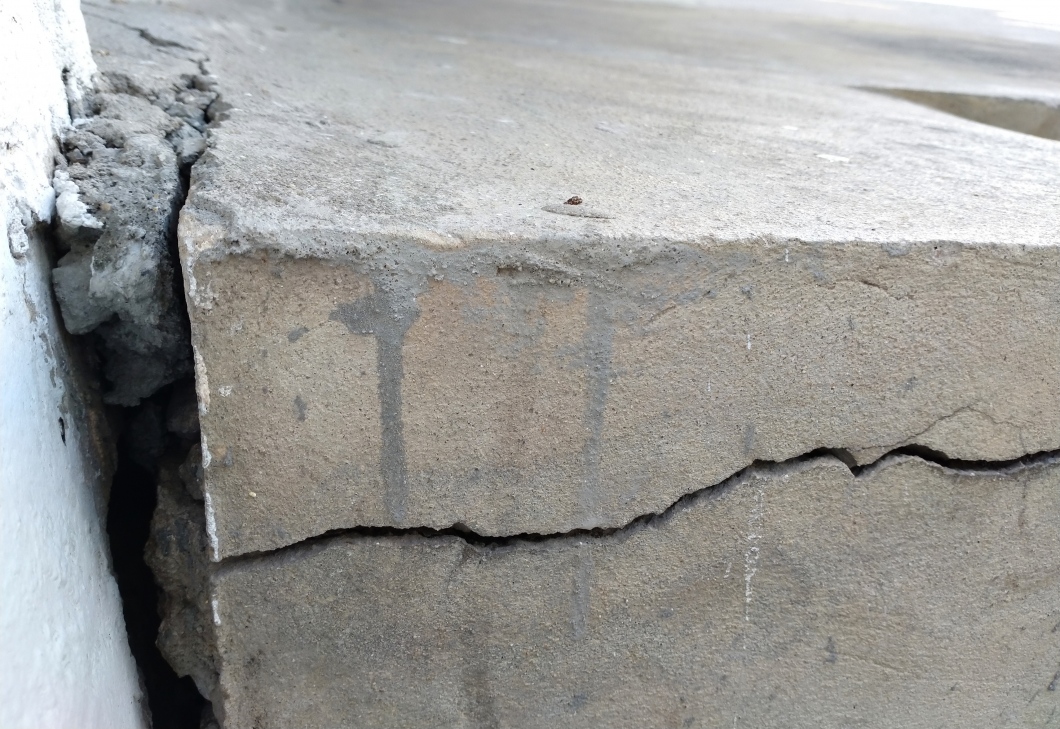As the spring season slowly makes itself known, you will start to notice that rainstorms are starting to become more frequent. From torrential rain to simple drizzly days, your property is at risk of water exposure. While there are many types of damage that can happen to a home, water damage is among the most common. That’s because there are so many ways it can enter your home undetected, causing harm that may go unnoticed until the damage is extensive. You might be tempted to repair it yourself, but there are good reasons to leave the job to the experts. At any rate, there will be a lot of moisture around your home when it rains, your foundation will quickly absorb whatever humidity accumulates nearby. Two causes of foundation damage are soil erosion and soil saturation. To help you understand how these two things can affect your home, let’s take a closer look.
The Impact of Soil Erosion
Soil erosion is when the topsoil wears away because of flowing water. The eroding soil can allow the water to stay around the foundation and give way to foundation settling and shifting, leading to the additional sinking of the entire foundation. Soil erosion can even cause water to pool which can cause mold to accumulate within various parts of your property. Controlling the water flow within your property can help prevent problems like these. For example, French drains, as well as gutters, will help redirect rainwater to keep your foundation safe.
The Impact of Soil Water Saturation
Water draining into the soil makes it wet, as the soil expands, the added pressure can add stress to the foundation. The increasing pressure can often be more than what the building structure can handle, and walls begin to bend inward, causing cracks, leaks, and bowing. If you notice that there are cracks in your foundation, measure each crack to determine how quickly they are growing.
Signs of Foundation Damage
There can be several signs that relate to foundation issues. You might see leaks or cracks on walls or floors. Uneven floors and cracks in block walls are also an indication of humidity. Periodically check for signs inside and out. Puddles or small cracks in walls mean you need to call in a foundation repair specialist.
A sinking foundation or a bowing wall can be serious, and it could be frightening to know that the structure of the building may be compromised. But structural damage is often not as bad as it looks, and most problems can be solved by disrupting your home life.
Water Damage Restoration
Water damage is insidious and fast-acting, and if it’s not addressed quickly, it can spread through porous walls, flooring, furnishings, and carpets, causing further harm the longer it goes unchecked. Most reputable water damage restoration services will be available 24/7 to start the cleanup process as soon as possible and stop the damage in its tracks.
Water damage restoration professionals will be better able to judge the extent of the harm and assess the correct way to address it to save as many of your possessions as possible. It’s also likely that your insurance company will require you to have the work done by a professional company to be eligible for coverage. Restoration experts will have access to the type of heavy-duty equipment needed to properly remove water. Construction-grade air movers, vacuums, and dehumidifiers are just a few tools that professionals use to restore a damaged property
Mold Remediation
One of the most serious consequences of excess water and moisture in the home is mold. Spores can spread and infect the entire home in less than 48 hours, not only causing damage to the surfaces it grows on but also posing a potentially serious health risk, especially if someone in the home has allergies, asthma, or other respiratory problems. An expert will have the knowledge to determine the type of mold present and the materials and equipment needed to handle the situation correctly.
Foundation Damage Prevention
There are a variety of ways you can prevent water damage from ruining your foundation. For instance, you can make sure that water is unable to pool directly against your house. Even paved surfaces like driveways and walkways need to be angled to slope away from the home; otherwise, they will direct water toward the house. Cracks and holes in the basement should also be fixed as soon as possible to prevent water from making pools.
If you think that your home’s foundation has sustained damage, call in a building foundation repair professional that can fix your foundation or prevent water from being absorbed into the foundation. Not only can a foundation repair expert handle cracked and crumbling foundations, but they will also be able to offer advice to help your foundation remain undamaged in the future.
Preparation is the key to keeping your property safe from incoming storms this spring. Always rely on a professional if water damage appears too complex for you to resolve by yourself. Keeping your home dry will help your entire property stay intact for years to come. Look for a reputable company in your area that has a proven track record of water damage restoration services. Ask your friends, family, and neighbors if they have a recommendation, and check out online customer reviews to see what others are saying. Water damage can be devastating. Finding the right company for the job is the key to keeping your losses to a minimum.

